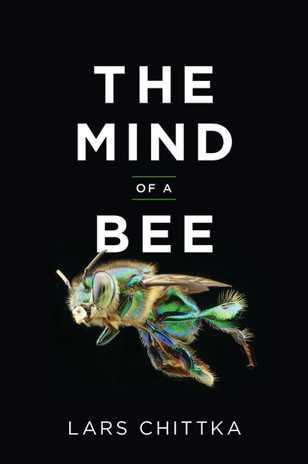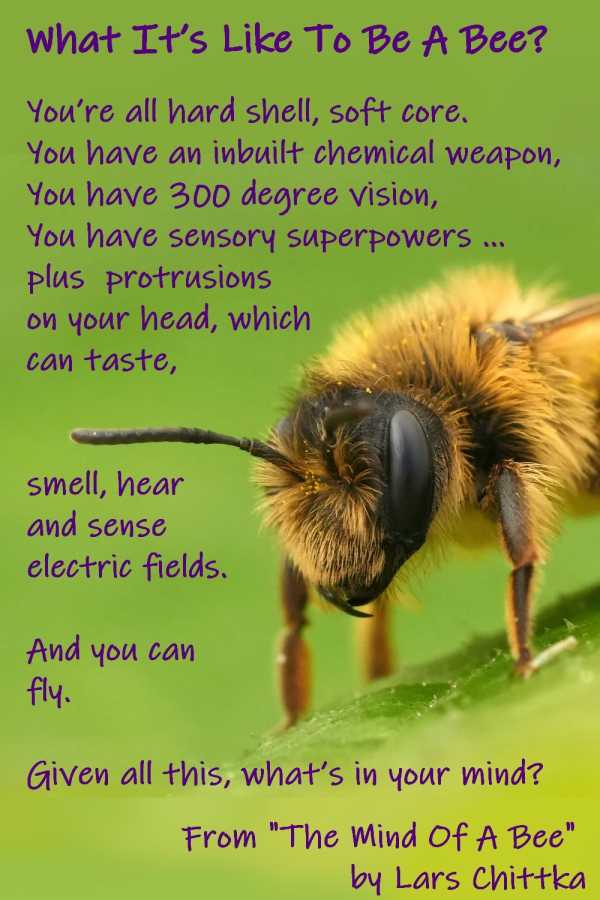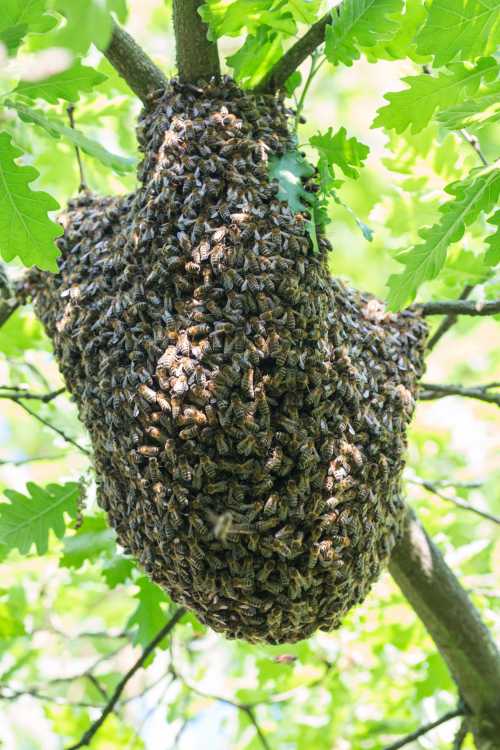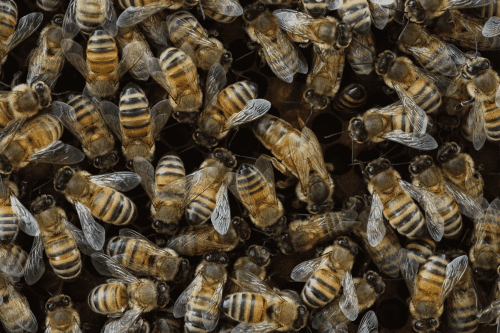The Mind Of A Bee - by Lars Chittka - Book Review
"What It’s Like To Be A Bee
You’re all hard shell, soft core. You also have an inbuilt chemical weapon, designed as an injection needle that can kill any animal your size and be extremely painful to animals a thousand times your size - but using it may be the last thing you do, since it can kill you too..….You have 300o vision, and your eyes process information faster than any human’s……You have sensory superpowers, such as a magnetic compass. You have protrusions on your head, as long as an arm, which can taste, smell, hear and sense electric fields. And you can fly. Given all this, what’s in your mind?" – Lars Chittka

Over the years, with the elevated profile of bees in the media, we have all been drip-fed various findings from ongoing scientific discoveries relating to bee intelligence.
And yet, if we humans failed to ‘get it’ – i.e. to piece together the more profound implications behind such research, Lars Chittka is here to help us begin to put the jigsaw puzzle together, so that we can more fully appreciate the bee.
In doing so, “The Mind Of A Bee” is an extraordinary book, and Lars Chittka is a true champion of the cause of bees and their welfare, quite simply because he uses science to demonstrate that bees are sentient creatures.
“The historical view – that in the absence of external stimulation or internal triggers such as hunger, the insect’s mind is dark and its brain is switched off – is no longer tenable.” – Lars Chittka
Professor Lars Chittka is a hugely respected scientist (based at Queen Mary University, London) in the world of bees (indeed, I reference his work in various relevant pages of my site).
That Lars has pulled together so many scientific studies (and not merely his own) in order to answer questions about the individual intelligence, personalities, emotions, pain sensing, problem solving, and self-awareness of bees, must surely make waves in the scientific community. It should also influence the general perception of the sentience level of invertebrates generally. Think about that the next time you consider squishing a fly, a tiny ant, or indeed a bee!
It is sobering to consider that (as Lars himself would concur), we are really only at the early stages of discovery. Why has it taken so long? We glean from Lars that all too often, scientists were asking the wrong questions, or starting from flawed and narrow assumptions about bees.
I have long held a view that all living creatures have a consciousness. From the experiments Lars outlines, it may appear to us that the consciousness of bees is only basic, but such a conclusion would surely only reflect our understanding and the questions we are asking.
What Lars has achieved is close to my own heart, because the big question he poses to the reader is in essence this:
Now we know that such tiny creatures as bees think and feel, the big question for humanity is ‘do we care?’
What does this mean for the treatment of invertebrates in the laboratory? (This question has long troubled me, and years ago I wrote: “Is it okay to kill bees in order to study them?”) And what does this all mean for our conservation efforts?
We should certainly care if we appreciate the interdependence and inter-relatedness of the eco-system, and the living things it contains. Yes, government and farming need to act, but (as Lars reminds us in his 'Afterword') what we do to help bees in our own back gardens or in our own small courtyard, is very much up to us.
“The Mind Of A Bee” is a fascinating book that I hope will be read and understood by as broad an audience as possible, so that the important conclusions within may be shared more widely.
I see Lars and his like-minded colleagues as pioneers, and predict their discoveries will become deeper and more profound in the future, and I am truly grateful for their work.
Available from Amazon and other stores.
ISBN: 9780691236247
BuzzAboutBees.net is a member of the Amazon Associates Program.
As an Amazon Associate I earn from qualifying purchases if you click on a link from my website to an Amazon website page. I only recommend books and goods I myself like. Further information, see: Advertising And Affiliates Disclosure.


